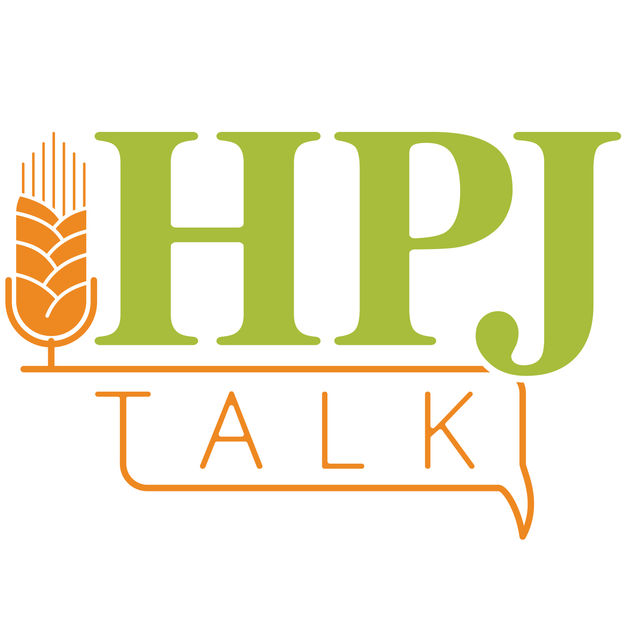
HPJ Talk
High Plains Journal Editoral Staff: Associate Editors Jennifer M. Latzke an
HPJ Talk is a weekly podcast featuring commentary and news for farmers and ranchers in the High Plains. #RideWithUs
- 24 minutes 7 secondsA Thirst for Knowledge Drives Regenerative Agriculture feat. Trisha Jackson of PrairieFood
Trisha Jackson, Ph.D. is the Director of Regenerative Agriculture for PraireFood™. She hails from central Kansas, where she learned to value prairies and rural communities. Her educational and personal adventures took her around the world, where she admired diverse cultures, foods, landscapes, and agriculture.
Through her graduate studies in soil science, environmental studies, and climatology, she came to understand how regenerative agricultural practices build healthy soil to create truly resilient communities brimming with nutrient-dense food, clean water, and plentiful wildlife.
With these values in mind, she was pleased to join the PrairieFood team to help ensure that rich, fertile soil is the number one crop.
7 November 2022, 7:48 pm - 34 minutes 31 secondsHow Soil Health Sustainability Helps Producers Build for the Future feat. Erin Silva, Ph.D.
Dr. Silva is an Associate Professor in the Plant Pathology Department at the University of Wisconsin-Madison.
Her research and extension program focuses on sustainable and organic cropping systems, including cover crops and cover crop-based no-till production, variety selection in organic environments, and the impact of organic management on soil biological and physical properties.
Erin has launched a comprehensive organic grain training program for farmers in the upper Midwest, “OGRAIN”. Erin works closely with organic farmers and industry members both in Wisconsin and throught the upper Midwest and serves on the Wisconsin Organic Advisory Council.
Organic Grain Resource and Information Network Website: https://ograin.cals.wisc.edu/
7 November 2022, 7:46 pm - 30 minutes 16 secondsLeading with Soil Health to Achieve Balance with Mother Nature feat. Rick Clark
Rick Clark is a 5th generation farmer from Williamsport, IN. The main goal on the farm is to build soil health and achieve balance with Mother Nature. Rick has developed and constantly improves a systematic approach to regenerative farming. The farm strives to be a low cost input producer, while maintaining an increase in yield year over year. The farm is 100% NGMO, 100% no till, and 100% cover crop. Rick is currently transitioning the 7000 acre farm to organic. He is most proud of developing a system of organic farming that uses no tillage. He will suppress weeds with cover crops. Rick cares deeply about human health as well, that is one of the main drivers behind the organic no till style of farming. Rick is building a system that will be viable and sustainable for generations to come.
A few years ago, Rick describes, the farm went through a major rain event. “We had a one-inch rain event on the farm right after we had freshly tilled some soil,” recalls Rick. “I could not believe how far that soil had moved in the ditch and was ready to leave the farm. That was enough.” What started as a desire to solve for discrete challenges on the farm—increasing soil resiliency in response to an eroding rain event—has transformed into a systematic dedication to building soil health across the operation. Farming Green, as Rick calls it, now encompasses a suite of conservation practices including planting cash crops directly into cover crops, no-till practices, rotational grazing livestock, and reducing inputs and energy use on the operation.
4 July 2022, 11:04 pm - 30 minutes 17 secondsPrecision Farming Tech, Crop Diversity with Livestock, and Regenerative Ag Principles feat. Monte Bottens
Welcome back to Soil Solutions with Jessica Gnad. This episode features Monte Bottens, a fifth-generation Illinois farmer who owns and operates Bottens Family Farm, Grateful Graze, is the Founder and CEO of Ag Solutions Network Inc., and host of the AgEmerge Podcast.
Monte shares what regenerative ag means to him and how producers can get started with it themselves, focusing on what consumers actually want, and how his operation Grateful Graze is using soil health principles.
Monte Bottens is a business owner, entrepreneur, and thought leader who has deep roots in agriculture. Raised as a fifth-generation, northwestern Illinois farmer, Monte is a business owner, entrepreneur and thought leader. Monte began his farming career with two bred sows given to him by his grandmother. Thanks to great guidance from his dad and equipment-sharing startup assistance, today he’s the owner of Bottens Family Farm (BFF).
The farm utilizes the latest agricultural innovations in precision farming technology and crop management systems while putting into practice advanced regenerative ag principles. BFF produces a diversity of crops and grass-fed livestock. which are sold direct to consumers under the Grateful Graze label.
He is the Founder, President and CEO of Ag Solutions Network, Inc. (ASN) headquartered in Moline, Illinois, where he leads the development and distribution of the POWER2GRO crop production system. ASN utilizes the latest technological advancements and highest-quality ingredients to enable farmers to build soil health and soil wealth. Monte is also the host of ASN’s podcast, AgEmerge where featured guests discuss new ideas, grower insights, research and emerging technology.
Monte is the Founder and Partner of California Ag Solutions, Inc. (CAS) in Madera, CA. The CAS team serves farmers of the Central Valley by helping them adopt reduced tillage techniques combined with improved water and nutrient efficiency using ASN’s POWER2GRO system on a wide variety of crops. Monte has a love for the agricultural diversity in California. He serves on the leadership team of Conservation Agriculture Systems Innovation (CASI) center that develops integrated reduced tillage and irrigation techniques in California and globally. His excitement for ag tech and continuous process improvement also led him to get involved with the UC Davis Entrepreneurship Program and the Sacramento Angels. He has a desire to teach others and make region specific practices applicable for all different crops, soil types, and climates throughout the US. He has presented at many conferences and universities sharing his passion for soil health and agriculture innovation.Monte is a graduate of Augustana College in Rock Island, Illinois. He and his wife Robyn live in Sherrard, Illinois, close to family and the family farm.
9 May 2022, 8:52 pm - 25 minutes 32 secondsKDA Division of Conservation: Central Region feat. Chad Basinger
Welcome back to Soil Solutions with Jessica Gnad. This is the third of three episodes highlighting the Kansas Dept. of Agriculture's Division of Conservation. Chad Basinger is a KDA Divison of Conservation representative for the Central Kansas region. In this episode, Chad shares how he got started farming and developed interest in soil health practices, the unique challenges farmers face in central Kansas, how the Conservation District helps educate farmers and producers on soil health and regenerative practices, and more.
Chad Basinger is a farmer and rancher from Pretty Prairie, Kansas. He has worked with the Conservation District, NRCS and the Cheney Lake Watershed on multiple projects over the years to make conservation improvements. Basinger is a consistent voice for sustainable agriculture, whether supporting programs and good land stewardship locally or traveling to Washington D.C. to advocate to our lawmakers. Alongside his wife, Cassondra, he owns Basinger Land & Cattle. They grow wheat, soybeans and grain sorghum and manage a cow-calf herd and background and finish calves. Basinger and his wife have 4 children and are actively involved in their community and their church.
Chad Basinger has served on the Reno County Conservation District board since 2019 and is currently the cice-chairperson of the board. He has served on the Reno County Farm Bureau Board for 9 years, the Reno County Cattleman’s Board of Directors for 3 years and the Garden Plain Farmer’s Cooperative for 6 years, including a tenure as board president.
25 April 2022, 6:56 pm - 31 minutes 16 secondsKDA Division of Conservation: Western Region feat. Michael ThompsonWelcome back to Soil Solutions with Jessica Gnad. This is the second of three episodes highlighting the Kansas Dept. of Agriculture's Division of Conservation. MIchael Thompson is a KDA Divison of Conservation representative for the Western Kansas region. In this episode, Michael shares his thoughts on why and how we can better manage our soil, mitigating erosion and declining water, the unique challenges farmers face in western Kansas, and more. Michael farms in partnership as Thompson Farm and Ranch LLC with his brother Brian and father Richard. The operation is located in Northeast Norton County near Almena, KS. They grow corn, soybeans, and wheat. They also manage a cow/calf beef herd that rotationally grazes on native range and diverse cover crops grown on farmland when there is not a cash grain crop growing. The operation is 100 percent no-till with a focus on increasing biology, soil cover, water holding capacity, and carbon levels of the soils they manage.
The last several years Thompson Farm & Ranch has been below their normal precipitation but still has been able to produce good yields in grain crops while providing enough forage for the cattle herd. The change in land management on Thompson Farm & Ranch has made a difference in surviving the years of less than normal rainfall.
He is a board member for Kansas Soil Health Alliance as well as No-Till on the Plains.
18 April 2022, 8:08 pm - 30 minutesKDA Division of Conservation: Eastern Region feat. Rod Vorhees and Daryl Donohue
Welcome back to Soil Solutions with Jessica Gnad. This is the first of three episodes highlighting the Kansas Dept. of Agriculture's Division of Conservation. Rod Vorhees and Daryl Donohue are KDA Divison of Conservation representatives for the Eastern and Southeastern regions of the state of Kansas. In this episode, they share their thoughts on the importance soil conservation and conservation partnerships, and the unique needs and challenges for soil health and conservation in their part of the state.
For nearly three decades, awareness of soil health and of implementing conservation practices to encourage healthier soil have been promoted at both the local and the state level by Rod Vorhees. Vorhees is the chairman of the Wilson County Conservation District, and he serves as the chairman of the Kansas Department of Agriculture’s State Conservation Commission (SCC). He has provided leadership, and first-hand knowledge of working on the land, during sessions with soil carbon organization representatives and through contact with soil health organizations at forage plots and land health monitoring locations. Rod Vorhees’ family’s ranching operation, Lazy VJ Farms, located near Coyville, was recognized with the 2017 Kansas Leopold Conservation Award.A native of Fredonia, Kansas, Daryl Donohue serves as treasurer of the Wilson County Conservation District Board of Supervisors. He serves as Kansas Association of Conservation Districts (KACD) Area V Director. Donohue is a rancher in northern Wilson County, Kansas, and he has been utilizing growing season burns, or “summer” burns, as a management practice for about many years. He actively promotes the use of prescribed burning to prevent cedar tree encroachment and to assist landowners and producers in recovering land invaded by cedar trees and, while doing so, encouraging native grasses and forbs to repopulate and thrive.
11 April 2022, 6:50 pm - 26 minutes 59 secondsYou Can't Buy Soil Health: Focusing on the Principles, Integrating Livestock, and More feat. Macauley KincaidMacauley Kincaid joins us on the Soil Solutions podcast to discuss how focusing on the pricinciples of soil health is vital for your operation, how integrating livestock helps produce healthier soil, the importance of self-education, how soil health impacts life beyond farming, and more. This episode is jam-packed with tons of great knowledge and info you certainly don't want to miss!28 March 2022, 4:00 pm
- 34 minutes 59 secondsWater Infiltration, Crop Diversity, and The Impact of Your Soil feat. Christie Apple
Today Christie Apple joins us on Soil Solutions to discuss the importance of soil health and regenerative ag education, how your decisions impact your operation's soil, and her thoughts about water infiltration, cover crops, and crop diversity.
Christie Apple, also known as 'CropScout Christie' on social media platforms, has been serving the agricultural community for the past 13 years. Leaning deeply on her customer service and communication skills, she's built her reputation as being an ag sales powerhouse with a heart to educate and engage folks both inside and outside of the agricultural universe.
Although in her formative years, she predominantly worked with a traditional row crop region, she has widely expanded her consultative role into vineyards, orchards, hemp, and numerous other specialty crop scenarios. Having a particular interest in soil health since day 1 in the industry, Christie has expanded her agronomic expertise and coaching to farms as they set out on their journey to transition their farming operations to regenerative or organic practices.
She's been engaging the public via social media for years sharing her adventures, and agronomy tid bits in the hopes of inspiring, educating and bringing light to other ways to farm. The past few years, she has also begun coaching and mentoring blossoming agronomists along their way to success, uncovering areas of professional development and emotional support for women looking to build a fulfilling career in ag.
Through her social media engagement, and mentoring, Christie has made it her mission to leverage her reach to encourage women to not just enter ag field, but to stay!
14 March 2022, 3:10 pm - 27 minutesIs Soil Health Fake News? feat. Gail FullerWelcome back to Soil Solutions with Jessica Gnad. Today's episode features Gail Fuller. Gail shares his experience with using cover crops and soil health practices over the years. He shares the importance of the process of learning (and unlearning) farming practices that promote healthy soil, putting soil health ideas into practice, and educating others on the importance and value of healthy soil as well as the significant impact it has on the world.
Gail has been experimenting with no-till since the mid-1980's and has been 100% since 1995. The further he gets into his journey, the more regenerating soil health has become his main focus. “The nation that destroys its soil, destroys itself” (FDR) is one of his favorite quotes and one he lives by!
Gail thinks the way to grow soil is through biodiversity. He believes diversity, both above and below ground, are key to growing healthy soil. Besides annual cover crops he uses companion crops and perennial cover crops. When it comes to livestock, again, diversity is key. He uses cattle, sheep, pigs, chickens and ducks to graze his covers utilizing intensive rotational or “mob” grazing. “The key to no-till is cover, and the key to covers is livestock.”
When Gail started looking into what it would mean for his family farm to be ecologically regenerative, he found himself learning the science behind soil life, photosynthesis, and the carbon, mineral and water cycles. He also started finding direct correlations between the health of the soil and his own health. His exploration led him to organize an annual "Field School" that draws speakers and guests from around the world to share the latest knowledge on regenerative agricultural practices.
For Gail, Regenerative Agriculture is not just regenerating soil, but the (re)growing of communities. This includes human, wildlife, and microbial communities. Helping to make them stronger and more resilient.
28 February 2022, 7:18 pm - 27 minutes 46 secondsRestoring Resilience and Profitability with Agro-ecology feat. Nicole MastersIn this episode of the Soil Solutions Podcast, Nicole Masters joins us to discuss using agroecology to find out what your soil needs to restore resilience and profitability with your operation.
Nicole is an agro-ecologist, educator and systems thinker with nearly 20 years’ extensive practical and theoretical experience in regenerative land practices.
She has been communicating these methods throughout Australasia since 2003 and North America (2013); helping to inspire and guide producers into new and innovative ways to produce food.
Nicole has a large commitment to finding win-win solutions for both the wellbeing of landscapes and landmanagers. As a seasoned soils coach, she has a proven record in supporting producers in meeting their goals. With over 1.2 million acres under her programs, Nicole excels at identifying and solving challenges through proactive management.
Her passion for fostering the growth of these farming practices calls upon diverse skills in facilitation, conflict resolution, an understanding of behavioral change and science communication.
With soil as a major driver for ecosystem health, Nicole has worked closely with diverse production sectors from; dairy, sheep & beef, viticulture, compost, nurseries, market gardens, racing studs, lifestyle blocks to large-scale cropping.
Working with such diverse clients has fostered a broad knowledge and understanding of the challenges facing different production systems. Nicole has devised and delivered educational programs for a wide range of organizations; consultants, businesses, landcare and extension services.
14 February 2022, 6:20 pm - More Episodes? Get the App
Your feedback is valuable to us. Should you encounter any bugs, glitches, lack of functionality or other problems, please email us on [email protected] or join Moon.FM Telegram Group where you can talk directly to the dev team who are happy to answer any queries.
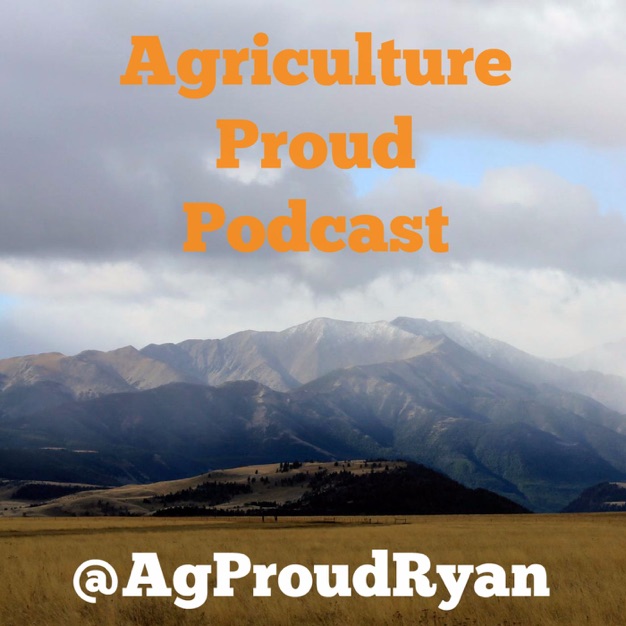 Agriculture Proud
Agriculture Proud
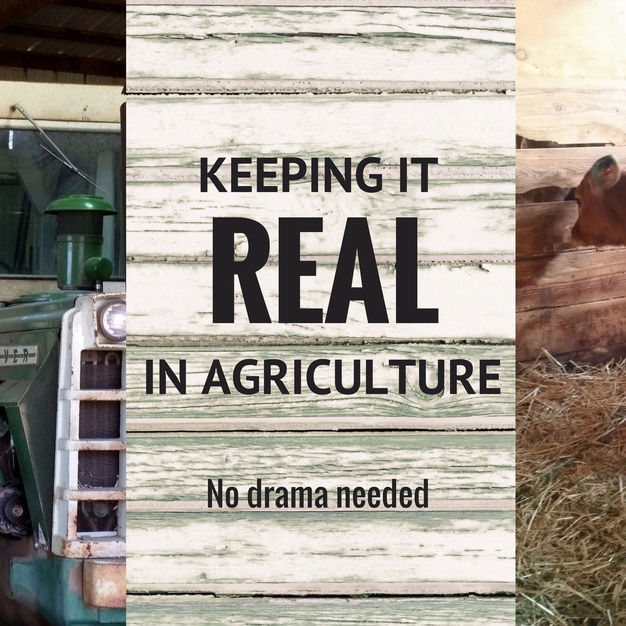 Keeping Ag Real
Keeping Ag Real
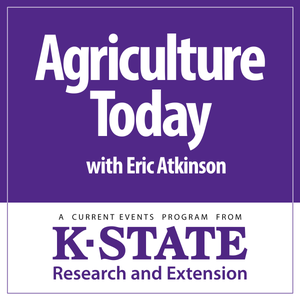 Agriculture Today
Agriculture Today
 HPJ Talk
HPJ Talk
 Sorghum Smart Talk
Sorghum Smart Talk
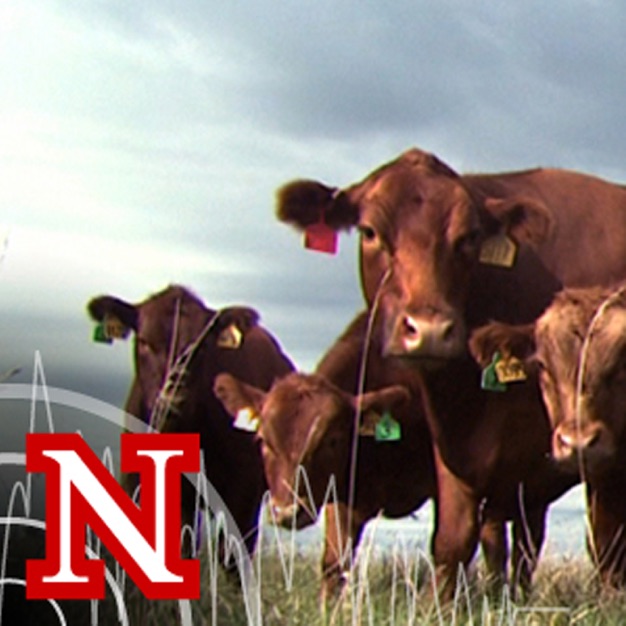 UNL BeefWatch
UNL BeefWatch